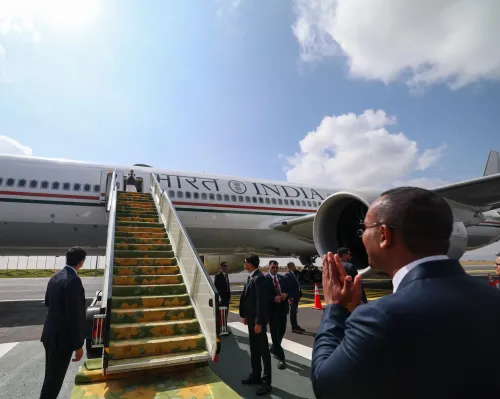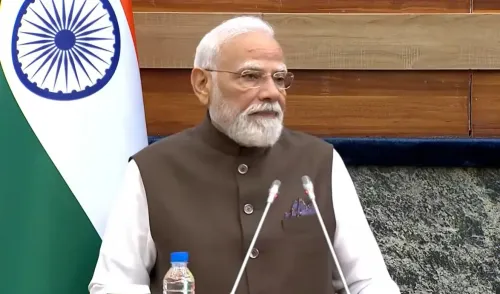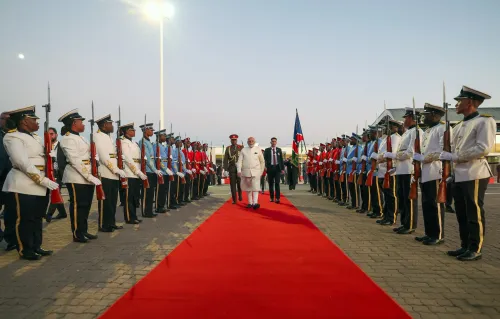Is the Pakistan Army Losing Ground in Khyber Pakhtunkhwa Due to TTP's Rural Dominance?

Synopsis
Key Takeaways
- Khyber Pakhtunkhwa is increasingly dominated by the TTP.
- The army's strategy has shifted to defensive positions.
- Local support for the TTP complicates military operations.
- Urban infiltrations by the TTP are alarming for security.
- Anti-army sentiments are growing among local populations.
New Delhi, Oct 25 (NationPress) The Pakistan army is increasingly finding Khyber Pakhtunkhwa (K-P) to be unfamiliar and challenging terrain. Despite having established a fragile truce with the Afghan Taliban, the army is facing conflicts on multiple fronts, particularly in K-P and Balochistan.
The ongoing internal conflicts have severely strained the country's security resources.
In K-P, the Tehreek-e-Taliban (TTP) appears to have nearly completed its takeover. The TTP is mirroring the tactics previously employed by the Taliban prior to the 2021 withdrawal of U.S. forces.
The TTP initially infiltrated rural areas before gradually expanding into urban territories, replicating the Afghan Taliban's strategy.
An official indicated that conditions have deteriorated to such an extent that numerous soldiers, particularly those from Punjab, are hesitant to be deployed in this region. Several rural and tribal areas, including regions adjacent to North and South Waziristan, Bajaur, and Khyber Kurram, are now under TTP control. Soldiers are particularly reluctant to enter rural areas due to their complexity and the TTP's superior combat capabilities there.
Moreover, the TTP's local support exacerbates the situation for the Pakistan Army. Many soldiers have opted not to engage in these zones. As a temporary measure, it has been decided that troops will adopt defensive positions instead of actively pursuing TTP members.
Essentially, a 'shoot if shot at' approach is being employed in the rural areas of K-P. While the TTP dominates these regions, the army is particularly concerned about the group's infiltration into urban areas. The infiltration into urban locations such as Bara Road, Badaber, and Mattani has raised alarms within the Pakistani military. Before the TTP's advance, these zones were managed by the Frontier Corps and local law enforcement. These areas are now being utilized for fundraising to support TTP operations.
Additionally, the movement of terrorists, arms, and ammunition is prevalent in these regions. Recently, videos surfaced showing TTP members celebrating publicly and soliciting funds. The footage from urban zones highlights the extent of TTP control and the army's diminishing capacity to intervene. The videos also depict TTP fighters inspecting vehicles and checking documentation, further suggesting their dominance.
With each passing day, the Pakistan army is struggling to regain control over the TTP. Several factors contribute to the army's inability to contain the TTP, including the presence of formidable fighters whom the military finds challenging to confront.
Across various parts of Pakistan, an anti-army sentiment is growing. This sentiment has significantly contributed to local populations favoring the TTP over the military. A similar trend can be observed in Balochistan and Pakistan-occupied Kashmir (PoK).
Moreover, the army is engaged in a fierce confrontation with the Balochistan Liberation Army (BLA) and has sustained substantial losses in recent years.
Furthermore, the relationship with the Taliban has been fraught with difficulties, compounding the army's challenges. Additionally, the Indian border remains a concern, as the army is focused on preventing terrorist infiltration. With its resources stretched thin across multiple fronts, the army is running out of alternatives and has endured significant losses.










